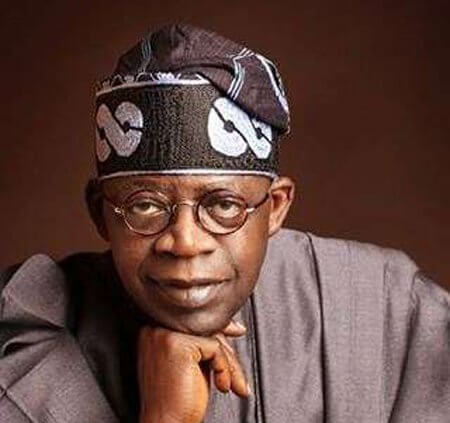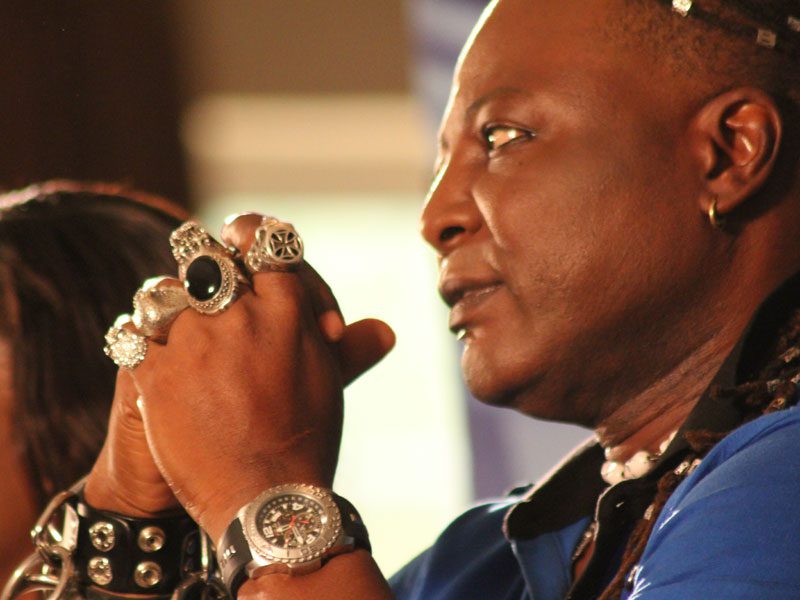Political Issues
Urging Tinubu To Alleviate Poverty In Nigeria As Promised During Campaign -By Isaac Asabor
A situation where some Nigerians are swimming in questionable opulence whereas others are daily demoralized by poverty does not paint a picture of a democratic government that is striving towards the attainment of an ideal social justice and equity for its citizenry.

It was John F. Kennedy who said “If a free society cannot help the many who are poor, it cannot save the few who are rich”. Ostensibly giving meaning to this saying, President Bola Ahmed Tinubu, during his campaign ahead of the 2023 presidential election through which he became Nigeria’s president, and since he was sworn in on May 29, 2023, has been making promises to tackle poverty.
For instance, on the heels of his swearing-in at Eagles Square, after he was sworn in following the end of ex-President Muhammadu Buhari’s tenure, about 10 months ago, President Tinubu vowed to tackle poverty and create jobs with a bold economic agenda and said his administration would focus on building 15,000MW power generation.
He emphasized that his administration will prioritize job creation, food security, and the eradication of extreme poverty as key aspects of its economic development model, and also pledged to govern Nigeria impartially according to the constitution and the rule of law, promising to defend the nation against terrorism and criminal activities that threaten peace and stability.
He noted that In the coming days and weeks, his team will publicly detail key aspects of its programme citing the principles that will guide his administration, focus on job creation which will be a major factor, and also feature women and youth in prominent places.
“We shall remodel our economy to bring about growth and development through job creation, food security, and an end to extreme poverty, and “In our administration, Women and youth will feature prominently.
One of his statements which intrigues this writer most is “Our mission is to improve our way of life in a manner that nurtures our humanity, encourages compassion toward one another, and duly rewards our collective effort to resolve the social ills that seek to divide us.
“Our constitution and laws give us a nation on paper. We must work harder at bringing these noble documents to life by strengthening the bonds of economic collaboration, social cohesion, and cultural understanding. Let us develop a shared sense of fairness and equity.
Ostensibly assuring Nigerians that he would not disappoint them, President Tinubu highlighted the importance of a unified exchange rate, emphasized the need to redirect funds from arbitrage toward meaningful investments, and called for a reduction in interest rates, describing the current rates as detrimental to both the people and businesses in Nigeria.
Given the foregoing, it is a shame that the social problem he hopefully promised to tackle 10 months ago still exists in all 36 states across the country, particularly among Nigerians at the lowest rung of the ladder, who are invariably the people who are the worse off, who have the least money, least education, and the worst jobs or no jobs.
In as much as one would agree with the fact that the social problems of poverty, unemployment and social integration are collectively a cog in the wheel of social development, it would be germane in this context to conjecture that they are intertwined but poverty remains the worst of all the social problems. It is at the root of other social problems.
A popular aphorism succinctly describes poverty as a disease. No doubt, it is a disease in the sense that it incapacitates its victim’s abilities, talent, intellect, dreams, ambition, goals, efforts, performance, plan, self-respect, self-awareness and self-confidence. Another aphorism couched in philosophical terms says “A man is not poor every day”. In other words, a man is only poor on the particular day he cannot fend for himself and his family.
No matter how African Traditional Philosophers want people to see poverty, the fact remains that once a person is poverty-stricken, no matter the pressure from his I-can-do-it spirit can he hardly succeed in any endeavour except there is a divine intervention or “mother luck” on his side. Poverty, no doubt, has since Tinubu was sworn in as Nigeria’s president rendered many Nigerians hopeless and despondent. Many cannot buy things they want; many cannot pursue their goals and many cannot exercise their inalienable right to freedom of speech for the fact that it would not be accepted because of their poor status.
Many poor individuals in Christendom see poverty as the handiwork of those demonic elements in the spiritual realm. This trite fact is beyond dispute; after all, it has been written that “We wrestle not against flesh and blood, but against principalities, against powers, against rulers of the darkness of this world and against spiritual wickedness in high places”.
Poverty is a serious issue to contend with that most Christians are wont to attack it violently. After all, the word of God says “And from the days of John the Baptist until now the kingdom of heaven suffereth violence, and the violent take it by force”.
Have you ever observed a deliverance service against poverty? If you have not you are missing a lot. Paul C. Jong in one of his books on the Holy Spirit captured the scenario thus: “Those who attend such meetings tend to cry out instead of uttering prayers. When the atmosphere reaches its feverish peak, people scream out and faint in every corner.
However, the preacher on stage keeps the microphone to his lips and makes the sound of the wind while he guides people ever deeper into religious fanaticism. He prays by speaking in strange tongues and jumps off stage to lay his hands on people’s heads”. No doubt, the foregoing aptly paints the picture of a typical deliverance service towards the casting out of demons that were satanically assigned to unleash the affliction of poverty on their victims. Poverty is truly a disease. To free oneself from its stranglehold demands both spiritual and physical efforts.
Agreed, the problem of poverty may sometimes be spiritual, but have we asked if our leaders are truly putting the people first in their socio-economic enhancement programme? Forces and elements in the spiritual realm may not be responsible for the preponderance of poverty. Poverty may have been exacerbated in our society as a result of the seeming ineptitude, insensitivity, official malfeasance, corruption, tribalism, nepotism, materialism and any other factor which our leaders wittingly or unwittingly exhibit in the course of carrying out their official responsibilities.
On the part of some of us, we have seemingly accepted poverty to be insurmountable that we no longer fight it through education, skill acquisition and wealth creation. The Bible in the book of Ecclesiastes chapter 11 verse 4 says: “He that observeth the wind shall not sow, and he that regardeth the clouds shall not reap.” Most of us have brilliant ideas that would liberate us from poverty but the problem is that in the context of the foregoing scripture, we have for long been observing the wind and regarding the cloud. This attitude, no doubt, has left us poorer. Most of us have refused to swim against the stubborn tide of poverty. Nelson Mandela in his quote on the fight against poverty, said: “Overcoming poverty is not a task of charity, it is an act of justice. Like Slavery and Apartheid, poverty is not natural. It is man-made and it can be overcome and eradicated by the actions of human beings. Sometimes it falls on a generation to be great. You can be that great generation. Let your greatness blossom.” Put in another way, poverty is a choice. Many people in our country see the government as being responsible for their breakfast, lunch and dinner. To me, it is a wrong line of thinking. This attitude has made many potential entrepreneurs remain salary earners.
Be that as it may, the truth remains that the plight of many Nigerians is undoubtedly a paradox. Or how else can one explain the plight of people whose country is richly blessed in every sense of the word struggling with poverty and unemployment?
There is a scripture in the bible that says “When the righteous are in authority, the people rejoice: but when the wicked beareth rule, the people mourn”.
The question now is, are some of us who are opportune, lucky or blessed with material wealth righteous when dealing with the poor?
Again, those of us that are entrusted with public funds, are we handling it righteously without betraying the trust and confidence that the people repose in us?
If the environment is conducive many Nigerians, particularly the youths, would be able to realize their potential, build self-confidence and live a life that would be full of dignity, achievement and fulfilment. Have we truly asked ourselves the reason why our youths in the northern part of the country are easily recruited into the Boko Haram sect and other evil associations?
A situation where some Nigerians are swimming in questionable opulence whereas others are daily demoralized by poverty does not paint a picture of a democratic government that is striving towards the attainment of an ideal social justice and equity for its citizenry.
Still in the same nexus, our leaders should shun corruption as much as possible to pave the way for good governance that would, no doubt, reduce poverty, unemployment and social disintegration.


















